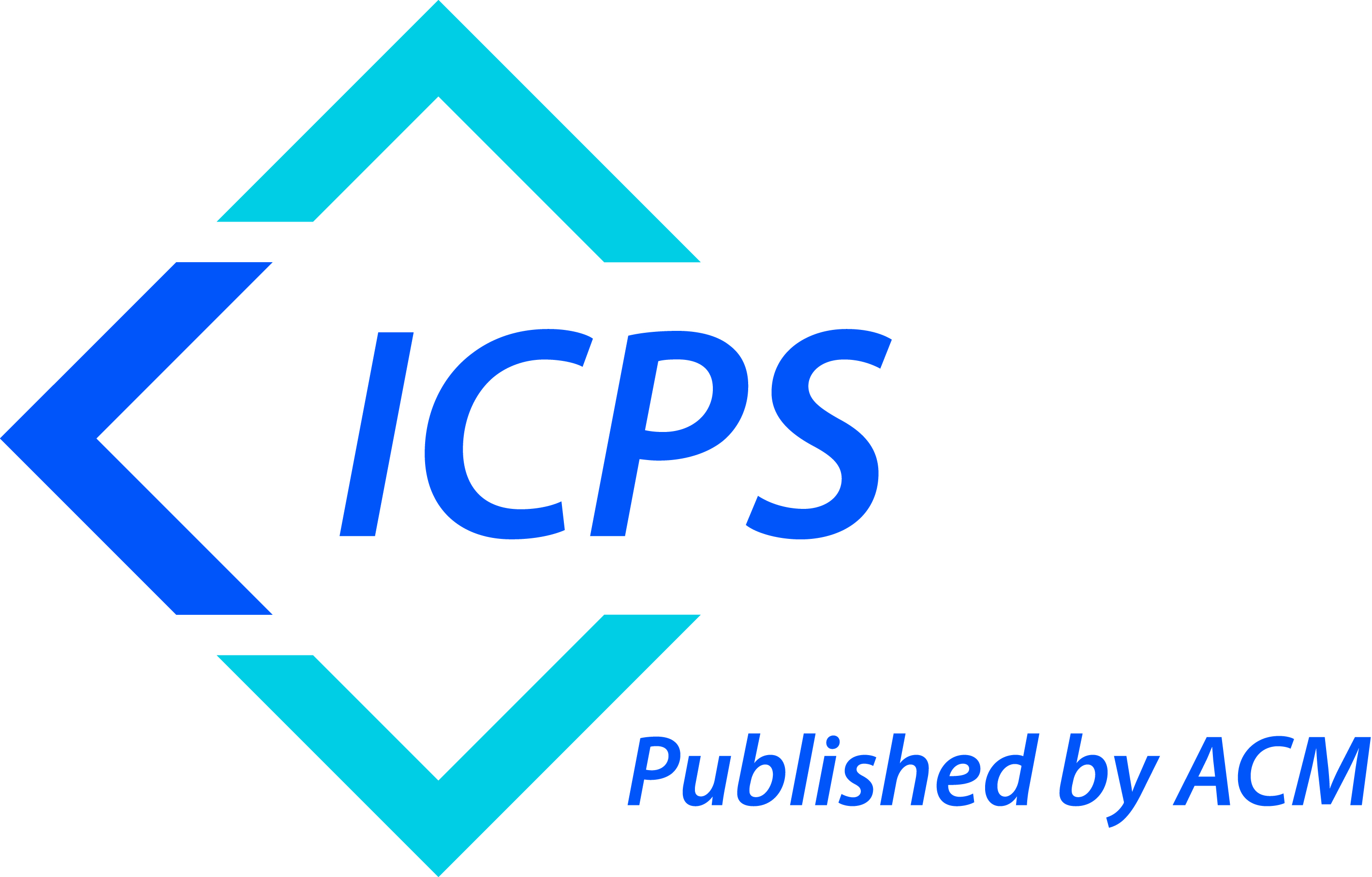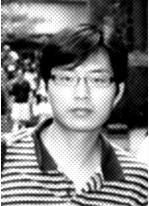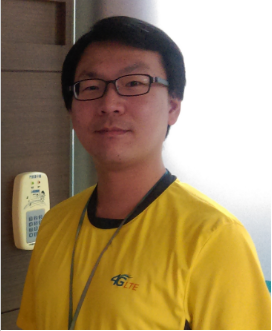【同济大学、上海大学联合主办 | ACM出版】
2023年机器人与人工智能国际会议(JCRAI 2023)
重要信息
会议时间:2023年7月21-23日
召开地点:中国上海
截稿时间:2023年7月16日
出版社:ACM icps
录用通知:投稿后1周内
收录检索:EI,Scopus
主办单位:同济大学
协办单位:上海大学、湖南大学
技术支持:IEEE Northeast Michigan Section,香港机器人与自动化协会(HKSRA),科享学术交流中心



会议简介
★2023年机器人与人工智能国际会议(JCRAI 2023)--- Ei Compendex&Scopus-Call for papers|2023年7月21-23日,中国上海同济大学
★JCRAI 2023主要围绕“机器人与人工智能”的研究领域而展开,致力于促进世界顶尖创新者、科学家、学者、研究人员和思想领导者之间的交流和探讨,促进机器人与人工智能领域的发展,会议期间您将有机会聆听到前沿的学术报告,见证该领域的成果与进步。
会议日程预览:
|
会议时间
|
内容
|
|
2023年7月21日
|
注册+接待
|
|
2023年7月22日
|
开幕式+KN演讲+分会场报告
|
|
2023年7月23日
|
分会场报告+实验室参观
|
关于出版和索引
JCRAI 2022 Conference Proceedings (ISBN: 1742-6596) | Journal of Physics: Conference Series 2188 (2022) 011001 | Ei Compendex&Scopus
JCRAI 2021 Conference Proceedings (ISBN: 1742-6596) | Journal of Physics: Conference Series 2188 (2022) 011001 | Ei Compendex&Scopus
所有接受并注册的文章将出版在ACM International Conference Proceedings Series(ICPS)会议论文集中,并提交 Ei Compendex, SCOPUS, CPCI, Google Scholar, Cambridge Scientific Abstracts (CSA), Inspec, SCImago Journal & Country Rank (SJR), EBSCO, CrossRef, Thomson Reuters (WoS)检索,优秀论文将在国际期刊上发表。



组委会成员
| General Chair |
|
|
 |
|
|
|
Ahmed Abdelgawad
Central Michigan University, USA
|
|
|
|
Conference Chairs
|
| ,
|
 |
 |
|
|
Bin Jiang
Hunan University,China
|
Liang Hu
Tongji University, China
|
|
|
Conference Co-Chairs
|
|
|
 |
 |
|
|
Nengjun Zhu
Shanghai University, China
|
Chi-Hua Chen
Fuzhou University, China
|
Keynote Speakers 2023
Keynote Speaker Ⅰ

Prof. Jan Peters
TU Darmstadt, German Research Center for AI (DFKI), Hessian.AI, Germany
IEEE Fellow, ELLIS Fellow and AAIA Fellow
Introduction to Prof. Jan Peters:
Jan Peters is a full professor (W3) for Intelligent Autonomous Systems at the Computer Science Department of the Technische Universitaet Darmstadt since 2011, and, at the same time, he is the dept head of the research department on Systems AI for Robot Learning (SAIROL) at the German Research Center for Artificial Intelligence (Deutsches Forschungszentrum für Künstliche Intelligenz, DFKI) since 2022. He is also is a founding research faculty member of the Hessian Center for Artificial Intelligence. Jan Peters has received the Dick Volz Best 2007 US PhD Thesis Runner-Up Award, the Robotics: Science & Systems - Early Career Spotlight, the INNS Young Investigator Award, and the IEEE Robotics & Automation Society's Early Career Award as well as numerous best paper awards. In 2015, he received an ERC Starting Grant and in 2019, he was appointed IEEE Fellow, in 2020 ELLIS fellow and in 2021 AAIA fellow. Despite being a faculty member at TU Darmstadt only since 2011, Jan Peters has already nurtured a series of outstanding young researchers into successful careers. These include new faculty members at leading universities in the USA, Japan, Germany, Finland and Holland, postdoctoral scholars at top computer science departments (including MIT, CMU, and Berkeley) and young leaders at top AI companies (including Amazon, Boston Dynamics, Google and Facebook/Meta). Jan Peters has studied Computer Science, Electrical, Mechanical and Control Engineering at TU Munich and FernUni Hagen in Germany, at the National University of Singapore (NUS) and the University of Southern California (USC). He has received four Master's degrees in these disciplines as well as a Computer Science PhD from USC. Jan Peters has performed research in Germany at DLR, TU Munich and the Max Planck Institute for Biological Cybernetics (in addition to the institutions above), in Japan at the Advanced Telecommunication Research Center (ATR), at USC and at both NUS and Siemens Advanced Engineering in Singapore. He has led research groups on Machine Learning for Robotics at the Max Planck Institutes for Biological Cybernetics (2007-2010) and Intelligent Systems (2010-2021).
Speech Title:
Inductive Biases for Robot Learning
Abstract:
Autonomous robots that can assist humans in situations of daily life have been a long standing vision of robotics, artificial intelligence, and cognitive sciences. A first step towards this goal is to create robots that can learn tasks triggered by environmental context or higher level instruction. However, learning techniques have yet to live up to this promise as only few methods manage to scale to high-dimensional manipulator or humanoid robots. In this talk, we investigate a general framework suitable for learning motor skills in robotics which is based on the principles behind many analytical robotics approaches. To accomplish robot reinforcement learning learning from just few trials, the learning system can no longer explore all learn-able solutions but has to prioritize one solution over others – independent of the observed data. Such prioritization requires explicit or implicit assumptions, often called ‘induction biases’ in machine learning. Extrapolation to new robot learning tasks requires induction biases deeply rooted in general principles and domain knowledge from robotics, physics and control. Empirical evaluations on a several robot systems illustrate the effectiveness and applicability to learning control on an anthropomorphic robot arm. These robot motor skills range from toy examples (e.g., paddling a ball, ball-in-a-cup) to playing robot table tennis, juggling and manipulation of various objects.
Keynote Speaker Ⅱ

Prof. Guandong Xu
University of Technology Sydney, Australia
IET Fellow and ACS Fellow
Introduction to Prof. Guandong Xu:
Dr Guandong Xu is a Professor in the School of Computer Science and Data Science Institute at UTS and an award-winning researcher working in the fields of data mining, machine learning, social computing and other associated fields. Guandong is the Director of the UTS-Providence Smart Future Research Centre, which targets research and innovation in disruptive technology to drive sustainability. His research has attracted funding of more than $8 million from the ARC, government and industry. He also heads the Data Science and Machine Intelligence Lab, which is dedicated to research excellence and industry innovation across academia and industry, aligning with the UTS research priority areas in data science and artificial intelligence. Guandong has had more than 240 papers published in the fields of Data Science and Data Analytics, Recommender Systems, Text Mining, Predictive Analytics, User Behaviour Modelling, and Social Computing in international journals and conference proceedings in recent years, with increasing citations from academia. He has won numerous awards, including the Digital Disruptors Winner for ICT Research Project of the Year, Australian Computer Society (2021), the eBay's Leaders' Choice Award (2021); the CIKM'2021 Conference Best Research Paper Finalist; Global Efma-Accenture Insurance Innovation Award in Workforce Transformation (2020); the Digital Disruptors Winner for Skills Transformation of Small Work Teams, Australian Computer Society (2019), and the Digital Disruptors Gold Award of Service Transformation for the Digital Consumer – Corporate by Australian Computer Society (2019); the Top 10 Analytics Leaders by Australian Analytics Professional Peak Body (2018); the Australasian Database Conference Best Student Paper Award (2018); Marketing Excellence Award in Customer Research, NSW (2017), and; the Big Insights Data Innovation Award in Customer Insights (2016). He has shown strong academic leadership in various professional activities. He is the founding Editor-in-Chief of Human-centric Intelligent Systems Journal, the Assistant Editor-in-Chief of World Wide Web Journal, as well as the founding Steering Committee Chair of the International Conference of Behavioural and Social Computing Conference. Guandong has an MSc and a BSc in Computer Science and Engineering, and a PhD in Computer Science. After holding various research positions at European and Australian universities, he joined UTS in 2012. He was elected as the Fellow of Institution of Engineering and Technology (IET), UK and the Fellow of Australian Computer Society (ACS) in 2021 and 2022.
Speech Title:
Counterfactual Explanations in Conversational Recommendation
Abstract:
Conversational Recommender Systems (CRSs) fundamentally differ from traditional recommender systems by interacting with users in a conversational session to accurately predict their current preferences and provide personalized recommendations. Although current CRSs have achieved favorable recommendation performance, the explainability is still in its infancy stage. Most of the CRSs tend to provide coarse explanations and fail to explore the impact of minimal alterations on the recommendation decisions on items. In this talk, we propose to incorporate the counterfactual techniques into CRS and propose a Counterfactual Explainable Conversational Recommender (CECR) to enhance the recommendation model from a counterfactual perspective. Counterfactual explanations can offer finegrained reasons to explain users’ realime intentions, meanwhile generating counterfactual samples for augmenting the training dataset to enhance recommendation performance. Specifically, CECR adaptively learns users’ preferences based on the conversation context and effectively responds to users’ realtime feedback during multiple rounds of conversation. Empirical experiments carried out on three benchmark datasets show that our CECR outperforms state-of-the-art CRSs in terms of recommendation performance and explainability.
更多主旨报告人正在邀请中. . . .
征稿主题/会议征稿
代理和多代理系统
专家系统
模糊逻辑
遗传算法
神经网络
群体智能
计算机视觉
增强现实
生物信息学
人机交互
图像/视频处理
模式识别
机器学习 |
环境辅助生活
数据科学
智能驾驶
物联网
智能建筑和城市
智能医疗保健
面向安全性的大数据分析
生物测定学
计算机取证
入侵检测
安全情报
垃圾邮件检测
信号处理 |
更多征稿主题请访问: http://www.jcrai.org/cfp.html
参会方式
1.作者参会:一篇会议, 录用文章允许一名作者参会;
2.主讲嘉宾:申请主题演讲,由会务组审核;
3.口头演讲:申请口头报告,时间为15分钟;
4.海报参会:申请海报参会,根据官网模板准备海报,再录制5分钟视频;
5.听众参会:不投稿仅参会,可参与问答,也可演讲及展示。
投稿方式
CMT在线投稿:https://cmt3.research.microsoft.com/JCRAI2023
请作者按照官网模板格式进行排版。排版好的论文全文(word+pdf版)发送至CMT在线系统。
提交摘要:即只参会做报告,不出版文章;
提交全文:即做参会做报告,并且出版文章;
听众:则不需要提交稿件,注册成功的听众可以参加会议的所有分会;
投稿要求:
1. 大会官方语言为英语,必须为全英文稿件,且应具有学术或实用价值,未在国内外学术期刊或会议发表过;
2. 保证文章原创性,未在国内外公开刊物或其它学术会议上发表过。
3. 文章篇幅一般在5-12页之间,不少于5页,含公式图表等,超过5页将收取超页费;
4. 作者可通过Turnitin或其他查询系统自费查重,重复率不得超过20%,由文章重复率引起的被拒稿将由作者自行承担责任;
5.文章录用:若您的文章被录用,我们将以邮件形式通知您,您将收到以下文件:录用通知、审稿意见表、中文注册表。